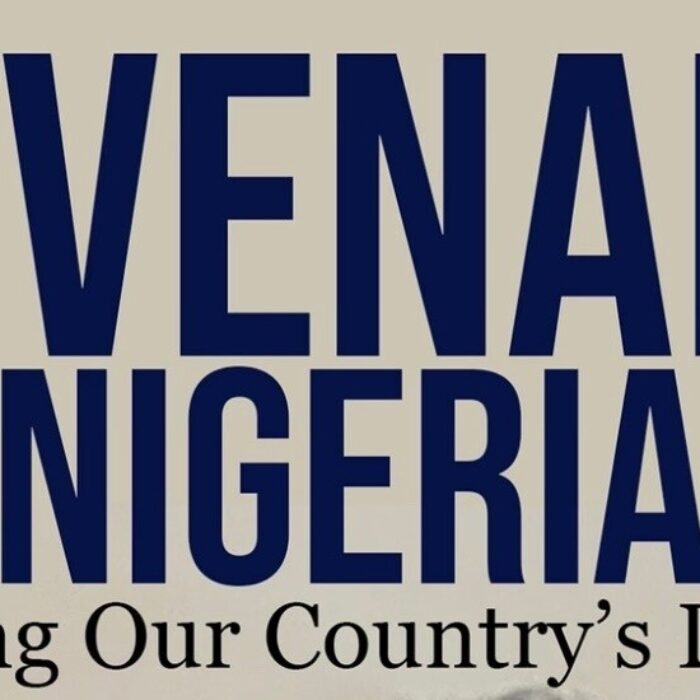By The Editorial Board
In recent private conversations, President Tinubu has reportedly expressed regret regarding the outcomes of his policy decisions since taking office, indicating that his presidency has not progressed as anticipated. Mr. Tinubu has only himself to blame as each policy blunder he unleashed on the nation has led to yet another policy fiasco with deadly consequences for millions of Nigerians.
This disclosure comes from an insider who has chosen to remain anonymous due to the sensitive nature of revealing private discussions with the president. It appears that in private, at least, Mr. Tinubu recognizes the shortcomings of his policies and accepts responsibility for them.
Yet, this recognition has not translated into improved policy-making. It appears that the president is at his wits’ end, lacking a clear strategy and the necessary problem-solving skills to address the nation’s issues. Currently, over sixty fragmented initiatives are active within the administration, revealing that cabinet members are evidently grasping at straws, desperately seeking solutions to problems they appear to fundamentally misunderstand.
Critics point out that this pattern of policy blunders, and the rate they repeat, reflects a presidency in crisis and a deeper inability to learn from past policy mistakes, raising concerns about Mr. Tinubu’s mental fitness for the demanding role of the presidency.
This situation is especially alarming as Nigeria grapples with major challenges such as a stagnant economy, escalating debt burden, rampant borrowing and relentless spending, severe inflation, and skyrocketing unemployment rates, all at once.
It is important to emphasize that the hasty and unplanned removal of the fuel subsidy without risk assessment and mitigation, excessive currency printing by the Central Bank of Nigeria, flooding the market with increasingly worthless Naira, and the reckless devaluation of the Naira, all sanctioned by Tinubu, have played a significant role.
Together with the administration’s uncontrolled expenditure, these measures have driven inflation to critical levels, resulting in the highest interest rates in decades and leading to the early failure or exit of numerous businesses.
Furthermore, due to Mr. Tinubu’s policy disasters, Nigeria is grappling with widespread starvation, rampant insecurity, and severe humanitarian crises, leading to extensive suffering and fatalities. These grave conditions highlight the critical and urgent need for capable and effective leadership at the helm. Clearly, Nigeria’s future under President Tinubu appears grim.
Internally, the Tinubu administration is described as chaotic and incompetent, rife with internal conflicts and disorganization that paralyze decision-making processes. Insiders who spoke on conditions of anonymity depict a cabinet in disarray, unable to effectively manage day-to-day governance amid these challenges, threatening to destroy the economic, social and political fabric of the nation.
Concerns extend to Mr. Tinubu’s health, as his public appearances and recent medical trips abroad suggest a significant decline in his physical and cognitive stamina. These developments fuel speculation about the severity of his undisclosed medical issues and underscore the necessity for transparency regarding his health, as mandated by the constitution.
To confront the current challenges and mitigate adverse consequences facing Nigeria under Mr. Tinubu’s leadership, I recommend the following urgent strategic imperatives:
- Health Transparency: Mr. Tinubu should publicly disclose his health status to maintain public trust and adhere to constitutional obligations.
- Policy Review and Strategic Adjustment: He should create an independent expert commission tasked with reviewing past policy decisions and recommending essential reforms in line with both national and international best practices. The commission should prioritize immediate solutions to alleviate economic pressures including inflation, starvation, unemployment, and currency stabilization, while also focusing on strategies for long-term economic recovery and growth.
- Cabinet Revamp: He must overhaul the cabinet to replace ineffective leaders, such as Minister of Finance and Coordinating Minister of the Economy, the Minister of Labour and Employment, the Minister of Power, the Minister of Transportation, the Minister of Industry, Trade, and Investment, the Minister of Agriculture and Food Security, the Minister of Budget and Economic Planning, the Minister of Humanitarian Affairs and Poverty Alleviation, the Minister of Health and Social Welfare, and the Minister of Police Affairs. This replacements should aim to create a more talented pool of professionals and technocrats, to run a dynamic, inclusive and responsive government.
- Strengthen Advisory Team: He should enhance the presidential advisory team with skilled professionals in economic management, national security, and social policy to provide robust, evidence-based advice to steer the country away from further crises.
- Promote Inclusive Governance: Implement more inclusive governance practices to address internal discord and engage a broader spectrum of political, social, and economic stakeholders in decision-making, irrespective of their political party affiliation, tribe, religion or region.
- Establish a Succession Plan: Given the concerns about Mr. Tinubu’s health, a clear and constitutional succession plan is essential to ensure stability and prevent a power vacuum. The critical question now is, given what we have learned about Vice President Kashim Shettima, is he the appropriate successor to Mr. Tinubu, despite constitutional stipulations?
- Regular Health Evaluations: Mandate regular health checks for all high-ranking officials to ensure they are physically and mentally capable of fulfilling their duties now and in the future.
- Engagement with Nigerians: Mr. Tinubu’s administration should increase engagement with civil society organizations and the general public to rebuild trust. Regular updates, media interviews by the president himself, town hall meetings, and transparent communication channels would enable more direct dialogue with citizens, allowing them to express their concerns and suggestions.
These recommendations aim not only to stabilize Mr. Tinubu’s administration but also to establish a foundation for future governance that prioritizes transparency, health, and effective leadership.
In conclusion, the continued challenges under Mr. Tinubu’s presidency highlight the urgent need for a thorough reevaluation of his ability to lead the nation effectively. For Nigeria’s stability and prosperity, it is critical to address these issues with clear-headed strategies and open communication about the realities facing the nation and Mr. Tinubu’s policy blunders.
As the president’s capacity to lead visibly diminishes in the coming months, it is the constitutional duty of the National Assembly to prioritize the nation’s interests and the welfare of its citizens over the personal ambitions of an ineffective president and partisan loyalty.
Under these circumstances, if the President Tinubu is deemed incapacitated, ineffective and unable to fulfill the duties of the office to the president, he must step down from office or be removed according to Section 144 of the Nigerian Constitution.



